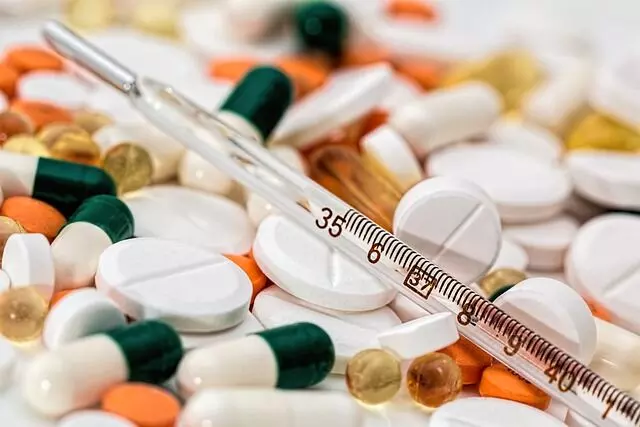
Government Fixes Retail Prices of 23 Essential Medicines, Easing Financial Burden on Patients

Concept image by Pixabay
Skyrocketing cost of medications has been a pressing concern since the onset of the pandemic. Affordability of essential drugs, crucial for managing diseases like diabetes and hypertension, has become a major challenge for millions. However, there is a glimmer of hope on the horizon as the National Pharmaceutical Pricing Authority (NPPA) has taken decisive action.
In a bid to alleviate the burden on patients, the NPPA has recently announced the fixed retail prices of 23 vital medications, including those used to combat diabetes and high blood pressure. These prices have been determined under the Drugs (Prices Control) Order, 2013, following decisions made in the Authority's 113th meeting on May 26, 2023.
New rates reveal substantial reductions in the prices of various life-saving drugs. Notably, the cost of a single tablet of 'Gliclazide ER' and 'Metformin Hydrochloride,' both commonly prescribed for diabetes, has been set at a mere Rs 10.03. Additionally, patients can now obtain one tablet each of Telmisartan, Chlorthalidone, and Cilnidipine for just Rs 13.17. For pain relief, a tablet of Trypsin, Bromelain, Rutoside Trihydrate, and Diclofenac Sodium will cost only Rs 20.51.
Furthermore, the NPPA has revised the ceiling prices of 15 notified formulations as per the Drugs (Prices Control) Order 2013 (NLEM 2022). Moreover, the maximum price for two scheduled formulations has been determined to ensure affordable access to essential treatments.
Recognizing the urgent need to curtail the mounting costs of medications, the Indian government is taking decisive steps to alleviate the burden on patients. In a significant move, the Central Government has approved the establishment of Pradhan Mantri Bhartiya Jan Aushadhi Kendras in 2,000 Primary Agricultural Credit Societies (PACS) across the nation. This strategic decision aims to extend the reach of Jan Aushadhi Kendras, which were previously limited to major hospitals and cities, to every village. By making generic medicines available at these centers, the government aims to provide cost-effective alternatives to expensive branded drugs, resulting in substantial savings for patients.
NPPA plays a crucial role in regulating and fixing the prices of bulk drugs and formulations in the country, ensuring their availability to the masses. It also actively monitors the pricing of medicines, ensuring that consumers are not charged exorbitant amounts. The department has been diligently working to curb the escalating prices and recover excess charges from customers, a significant step towards equitable access to affordable healthcare.
In a related development, the Union Health Ministry recently took a bold stand by banning 14 fixed-dose combination drugs. These banned medications included combinations such as clopheniramine maleate and codeine syrup, pholcodine and promethazine, and amoxolin and bromhexine. The move aims to enhance patient safety by curbing the use of certain combinations and protecting the public from potential risks.
Government's proactive measures in fixing retail prices and banning unsafe drug combinations are commendable steps toward ensuring affordable and reliable healthcare for all. With these initiatives, individuals burdened by the rising cost of medicines can now breathe a sigh of relief, knowing that their essential treatments will be more accessible and affordable.


